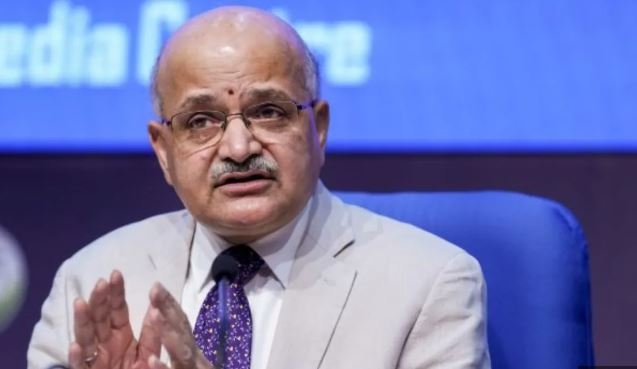Controversy at NITI Aayog Governing Council: 10 States Miss Meeting, PM Modi Pushes for Zero Poverty
NITI Aayog Meeting Drama: 10 States Skip Session, West Bengal CM Walks Out Midway
NEW DELHI, July 27: In a significant development, B.V.R. Subrahmanyam, CEO of NITI Aayog, revealed that ten states and Union Territories did not participate in the ninth Governing Council meeting of the NITI Aayog, which was chaired by Prime Minister Narendra Modi. The meeting saw attendance from 26 participants, including Chief Ministers and Lieutenant Governors of various UTs, Subrahmanyam reported during a media briefing.
The absent states and UTs included Kerala, Tamil Nadu, Karnataka, Telangana, Bihar, Delhi, Punjab, Himachal Pradesh, Jharkhand, and Puducherry. Subrahmanyam commented, “It is their loss if they did not participate.”
Addressing the issue of West Bengal Chief Minister Mamata Banerjee, who left the meeting prematurely, Subrahmanyam explained that her request to speak before lunch was accommodated, even though her turn was scheduled for the afternoon based on alphabetical order. The meeting saw Defence Minister Rajnath Singh briefly interrupt her speech, leading to her departure, although West Bengal government officials continued their participation.
Regarding Bihar, Subrahmanyam noted that Chief Minister Nitish Kumar was unable to attend due to a concurrent assembly session in the state.
NITI Aayog Vice Chairman Suman Bery highlighted that Prime Minister Modi urged states to actively compete for Foreign Direct Investment (FDI) to ensure that investments are evenly distributed, particularly benefiting less successful states. The meeting also focused on demographic management and the ambitious goal of achieving zero poverty.
Subrahmanyam added that Prime Minister Modi emphasized the importance of states increasing their expenditure on district-level development to drive growth. He also endorsed the concept of ‘zero poverty,’ suggesting that it be pursued at the village level, with villages potentially being declared ‘zero poverty villages’ following an assessment.




